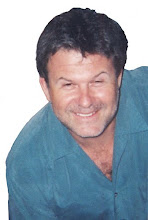Ten years ago, I didn’t know how to spell “millennium.” Did it have one “n” or two? An “e” in the middle, or an “i”?
At the time, this was important to know because the dawn of 2000 seemed to signify something Profound and Historic, and perhaps even Apocalyptic: Would nuclear power plants and intercontinental ballistic missiles be so confused by a “00” date they would throw digital tantrums and spew radioactive haze all over the globe? The possibility of millennial disaster seemed so real that we saw runs on bottled water, size-D batteries and large-caliber ammunition.
Ten months and seven days later, Al Gore was declared the winner of the November 2000 presidential election — for about 20 minutes. It seemed like the ’00s were indeed destined to become the False Alarm Decade.
Sept. 11, 2001, was no false alarm. The outrage of those attacks had one apparent benefit, however: America suddenly found new purpose and unity. The ’00s were suddenly the “We Decade,” the flip side of the self-centered, platformed-shoed “Me Decade” of the 1970s.
But, alas, “we” didn’t fit the evolving national argument over whether America had responded properly to 9/11. “We” didn’t fit a time of political and cultural polarization like none in living memory.
Naming this decade — and we must, because we are Americans, and we name things — isn’t going be so easy. Some decades, at least in retrospect, are easy calls. The Gay Nineties. The Roaring Twenties. The Psychedelic Sixties. But naming the ’00s is a challenge best postponed, because nothing we’ve considered rings with authenticity.
The Aughts? Problem is, hardly anyone under the age of 90 knows that “aught” means “zero.”
The Oughts? As in, we really ought to have sold the house when the Realtor told us it had tripled in value.
The Oh-Oh Decade? As in, uh-oh, our PG&E bill is $800.
No, no and no.
All we can do is look at the evidence that historians and sociologists not yet born will consider. And one thing, beyond the bookend disasters of 9/11 and the Great Recession, stands out: Technology reshaped who we are and how we interact.
Social media took hold of America in the last few years of the ’00s, with 350 million users on Facebook, 100 million on MySpace, and 18 million using Twitter.
Some of us are using these platforms to communicate important things to each other. But many of us are not. To a great extent, social media are simply self-aggrandizing spotlights.
At least that’s how Rhonda Dugan, an assistant professor of sociology at Cal State Bakersfield, sees it.
“I’d call it the Decade of Self-Importance,” she said. “Everyone is networking online, but they’re not doing it just to find jobs. They’re doing it to talk about themselves. The ‘Me Decade’ was all about me. Now it’s about me and telling everyone about it. I use Facebook myself. And now I’m asking myself, ‘Why am I posting that I ran a half-marathon?’ We’ve become more narcissistic, and social media has helped push it along.”
Evidence that we’re neck-deep in an era of public narcissism goes well beyond social media; you don’t need to know the difference between a computer and Coke machine to have seen it. Anyone can be a reality TV star, or so one might think: The Balloon Boy hoax and the White House party-crashers were logical conclusions to a decade of mind-numbing self-exploitation led by Tila Tequila and “Fear Factor.”
Russell Travis, the now-retired CSUB sociology professor-turned- Portland-based philanthropist, thinks in somewhat broader terms about the soon-to-be-past decade.
“I’d call it the PTSD — the Post-Traumatic Stress Decade,” he said. That name “reflects the cumulative stress from the aftermath of two ongoing wars and the many coming home afflicted with (real) PTSD; the aftermath of a seriously tanked economy; ... and the aftermath of the 2001 bombing of the Twin Towers.”
Maybe this is how we’ve come to deal with events just too big and too profound to process — by blocking out the wider world and turning inward, going to our own, personal safe place where the mundane trumps the abstract, the ordinary blocks out the incomprehensible, and 140 characters (or less) just about covers it.
Or, better stated in a Dec. 15 tweet by MeanKrystin: “Driving to the country club. I am drinking a juice box. Rock and roll.”
rprice@bakersfield.com.
Friday, December 18, 2009
Was this ’00 decade about ‘we’ or ‘me’?
Subscribe to:
Post Comments (Atom)


well said, nice post Bob... now back to me...
ReplyDeleteWhat Richard said, except that it's my turn. -aps
ReplyDelete